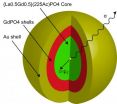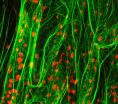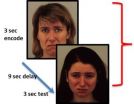(Press-News.org) Our ability to learn and form new memories is fully dependent on the brain's ability to be plastic – that is to change and adapt according to new experiences and environments. A new study from the Montreal Neurological Institute – The Neuro, McGill University, reveals that DCC, the receptor for a crucial protein in the nervous system known as netrin, plays a key role in regulating the plasticity of nerve cell connections in the brain. The absence of DCC leads to the type of memory loss experienced by Dr. Brenda Milner's famous subject HM. Although HM's memory loss resulted from the removal of an entire brain structure, this study shows that just removing DCC causes the same type of memory deficit. The finding published in this week's issue of Cell Reports, extends Dr. Milner's seminal finding to another level, revealing a key part of the molecular basis for learning and memory.
Although both netrin and DCC are essential for normal development (in terms of guiding nerve cell growth) until now their function in the adult brain was not known. Dr. Tim Kennedy, lead researcher and neuroscientist at The Neuro, contributed to the discovery of netrins as a young post-doctoral fellow. This new study reveals the answer to the question that drove him to first start a lab. "I remember that exact moment when I knew I could run a research lab, it was 1993 and I was studying the developing nervous system and I was amazed to spot netrins in the adult brain - raising the important question, 'what are they doing there?' 20 years of dedicated research later the answer provides an important piece of the puzzle for understanding our nervous system and neurological disorders.
"The power of this study is that it looks at the animal on all levels, molecular, structural, and behavioural. We show that the netrin receptor DCC is a critical component of synapses between neurons in the adult brain, and is required for synapses to function properly. To demonstrate this, we selectively removed DCC from a specific subset of neurons in the adult mouse brain. This results in progressive degeneration of synapses, leading to defects in synaptic plasticity and memory. The synapses continue to function in that they still communicate but, the synapses cannot adjust or change in response to new experiences. Therefore, you can't learn anymore."
Furthermore, DCC deletion from mature neurons results in changes in the shape of specialized protrusions called dendritic spines, and alters the NMDA receptor, a critical trigger for mechanisms that make changes in synaptic strength. Therefore the study reveals that DCC is required to maintain proper synapse morphology or shape, and to regulate the ability of the NMDA receptor to switch on, which ensures activity-dependent synaptic plasticity.
Mutant mice that entirely lack DCC in all cells do not survive past birth and exhibit major defects in brain development. In order to investigate the function of netrin in the adult brain, researchers from the Netherlands Cancer Institute, collaborators on this study, engineered a new strain of floxed mice, in which the DCC gene can be selectively deleted from a specific sub-set of cells. Floxing involves putting short sequences of DNA on either side of a gene sequence. An enzyme that is activated later in life then recombines the DNA and cuts out the intervening sequence – deleting the gene only from specific cells. The Kennedy lab activated this enzyme only in the mature mouse brain, and limited activation to only a subset of neurons, consequently deleting the DCC gene from only from these neurons. These mice live to adulthood (DCC is made normally in all other cells in the mouse) as the enzyme only turns on and deletes DCC in specific cells in the adult brain. Although the mice otherwise appear normal, testing their behavior revealed severe deficits in their ability to form certain types of new long-term memories.
This study provides important new insight into the neural mechanisms of learning and memory, processes that are fundamental to our existence, survival, and everyday life.
INFORMATION:
This research was funded by the Canadian Institutes of Health Research. Dr. Kennedy is a Chercheur national of the Fonds de recherche du Québec – Santé and a Scholar of the Killam Trusts.
Link to paper published this week in Cell Reports: http://download.cell.com/cell-reports/pdf/PIIS2211124712004299.pdf?intermediate=true
The Neuro
The Montreal Neurological Institute and Hospital — The Neuro, is a unique academic medical centre dedicated to neuroscience. Founded in 1934 by the renowned Dr. Wilder Penfield, The Neuro is recognized internationally for integrating research, compassionate patient care and advanced training, all key to advances in science and medicine. The Neuro is a research and teaching institute of McGill University and forms the basis for the Neuroscience Mission of the McGill University Health Centre. Neuro researchers are world leaders in cellular and molecular neuroscience, brain imaging, cognitive neuroscience and the study and treatment of epilepsy, multiple sclerosis and neuromuscular disorders. For more information, visit theneuro.com
END
HEALTH – Neutron imaging breast cancer . . .
More precise optical imaging is vital for better diagnosis of breast cancer, which strikes one in eight women annually in the United States alone. Researchers at Oak Ridge National Laboratory and the University of Tennessee are using the neutron imaging beam line at ORNL's High Flux Isotope Reactor to evaluate neutron imaging as a powerful new tool for early detection. The study, led by Dr. Maria Cekanova of UT, working with imaging instrument scientist Hassina Bilheux, is using tissue from dogs treated at the UT College of ...
VIDEO:
A new discovery might lead to alpha particle therapy for different types of cancer in the near future.
Click here for more information.
COLUMBIA, Mo. ¬— We've all heard that "it's not wise to use a cannon to kill a mosquito." But what if you could focus the cannon's power to concentrate power into a tiny space? In a new study, University of Missouri researchers have demonstrated the ability to harness powerful radioactive particles and direct them toward small cancer ...
By broadly comparing the DNA of children to that of elderly people, gene researchers have identified gene variants that influence lifespan, either by raising disease risk or by providing protection from disease.
"This research is the first genome-wide, population-based study of copy number variations in children associated with human longevity," said study leader Hakon Hakonarson, M.D., Ph.D., director of the Center for Applied Genomics at The Children's Hospital of Philadelphia.
The study appeared Jan. 30 in the open-access journal PLOS ONE.
Copy number variations ...
New York City experienced a historic decline in crime rates during the 1990s, but it was not due to the implementation of CompStat or enhanced enforcement of misdemeanor offenses, according to an analysis by New York University sociologist David Greenberg. The study, which appears in the journal Justice Quarterly, did not find a link between arrests on misdemeanor charges and drops in felonies, such as homicides, robberies, and assaults. In addition, the analysis revealed no significant drop in violent or property crime attributable to the NYPD's introduction of CompStat ...
Gravity affects the ecology and evolution of every living organism. In plants, the general response to gravity is well known: their roots respond positively, growing down, into the soil, and their stems respond negatively, growing upward, to reach the sunlight. But how do plants sense gravity and how do they direct or signal their cells to grow in response to it? Although botanists understand a great deal about how this works, a recent article in the recent issue of the American Journal of Botany reviews what we know so far, from mechanical to genetic approaches; it reveals ...
CAMBRIDGE, MA -- A typical cancer cell has thousands of mutations scattered throughout its genome and hundreds of mutated genes. However, only a handful of those genes, known as drivers, are responsible for cancerous traits such as uncontrolled growth. Cancer biologists have largely ignored the other mutations, believing they had little or no impact on cancer progression.
But a new study from MIT, Harvard University, the Broad Institute and Brigham and Women's Hospital reveals, for the first time, that these so-called passenger mutations are not just along for the ride. ...
ANN ARBOR—Women in developed countries survive roughly 10 years longer after a breast cancer diagnosis compared to women in poor-to-middle-income countries, a new University of Michigan study suggests.
The report demonstrates the lack of access to good health care faced by women in poor countries, said the study's principal investigator Rajesh Balkrishnan, an associate professor at the U-M schools of Pharmacy and Public Health.
Early diagnosis and sustained treatment were the biggest hurdles and also the main indicators of patient survival, he said.
Balkrishnan and ...
VIDEO:
NIMH's Dr. Maura Furey talks about how a functional brain imaging measure may help predict a patient's response to a rapid-acting experimental antidepressant.
Click here for more information.
A telltale boost of activity at the back of the brain while processing emotional information predicted whether depressed patients would respond to an experimental rapid-acting antidepressant, a National Institutes of Health study has found.
"We have discovered a potential ...
Healthy eating not only promotes growth and development, but also provides important opportunities for children to socialize during meals. A new, comprehensive analysis of feeding behavior in children with autism spectrum disorders (ASD) indicates that these children are five times more likely to have a feeding problem, including extreme tantrums during meals, severe food selectivity and ritualistic mealtime behaviors.
Researchers at Marcus Autism Center and the Department of Pediatrics at Emory University School of Medicine conducted a comprehensive meta-analysis of ...
A new NOAA research report finds that both fish populations and commercial and recreational anglers have benefited from "no-take" protections in the Tortugas Ecological Reserve in the Florida Keys National Marine Sanctuary.
The report, "An Integrated Biogeographic Assessment of Reef Fish Populations and Fisheries in Dry Tortugas: Effects of No-take Reserves," is the first to evaluate how the 151-square nautical mile Tortugas Ecological Reserve affects the living marine resources of the region and the people whose livelihoods are connected to them.
The report's analysis ...


